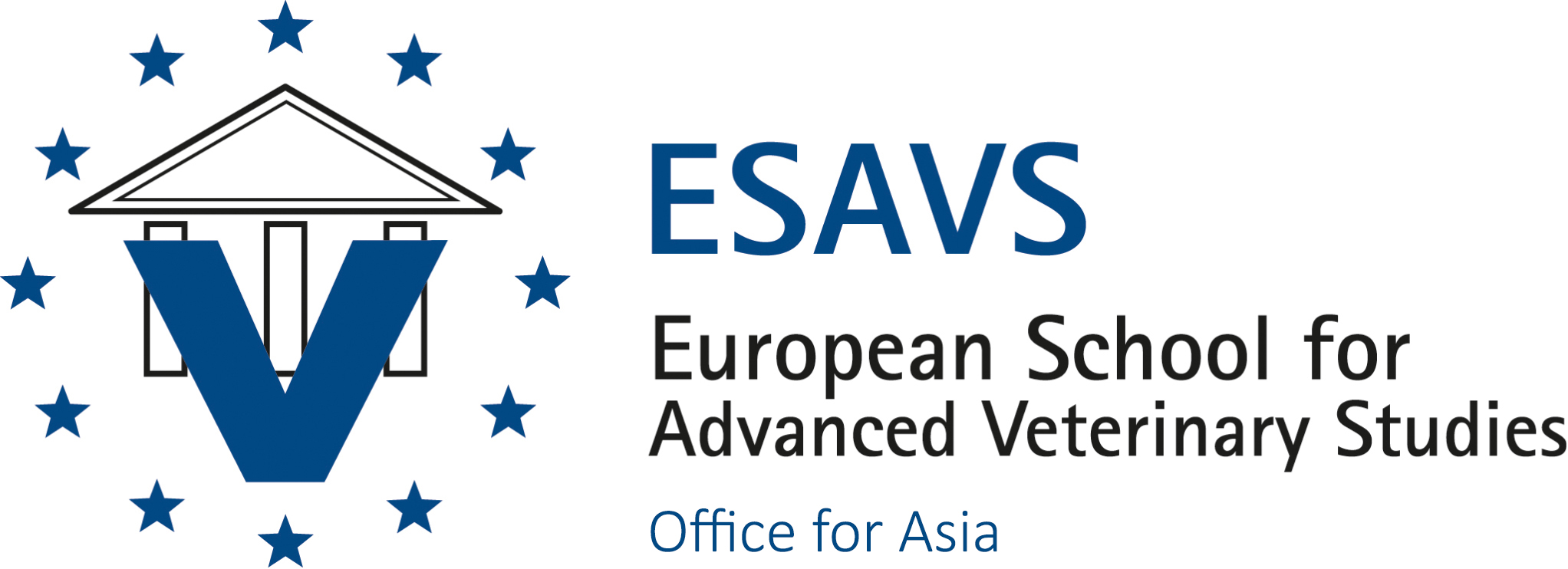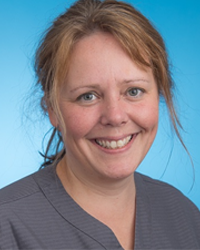General Overview
General Overview
The ESAVS Dermatology program consists of 6 one-week modules.
Dermatology I is mandatory before continuing to the next courses. Dermatology II, III, IV, V and VI can be taken in any order. The course masters and tutors are Diplomates in Dermatology (ACVD/ECVD/DVD) or diplomates, specialists and University teachers in the related disciplines within the program.
In this first introductory course, the basic principles of dermatology are reviewed. First is the biology of the skin, with special attention to the mechanisms of innate and acquired skin immunity and the skin microbiome. Second, the approach to the dermatological patient and how the diagnosis is made: the problem-oriented approach (POA), the decision-making process, the adequate use of diagnostic tests and the dual-processing model. Special attention is given to cutaneous histopathology, considered the most powerful diagnostic tool among the diagnostic tests. Furthermore, the students will learn how to design effective treatment plans under the paradigm of evidence-based medicine and the principles of conservative prescription.
In the second part of the course, the main bacterial diseases of the skin will be reviewed from common diseases such as superficial bacterial folliculitis to severe and uncommon conditions such as necrotizing fasciitis. The adequate use of diagnostic techniques (cultures, molecular techniques) and the therapy for skin infections, including those caused by multi-resistant organisms will be discussed.
Learning outcomes
At the end of the course, participants will be able to:
1. Understand skin structure and function (and how different components of the skin are involved in the pathogenesis of different skin diseases).
2. Approach a dermatologic patient following the POA (history, clinical and dermatologic examination, definition of the problem(s), elaboration of an adequate differential diagnosis list).
3. Perform and interpret basic diagnostic techniques (skin scrapings, cutaneous cytologies, skin cultures, skin biopsies).
4. Diagnose and treat the most common bacterial skin diseases of the dog and cat.
Main topics:
Skin biology. Mechanisms of cutaneous immunity. Skin microbiome.
The approach to the dermatologic patient. History, lesion description, problem definition and use of diagnostic techniques (cytology, histopathology, molecular techniques). How a diagnosis is made (dual processing theory).
Bacterial skin infections. Bacterial folliculitis-other superficial pyodermas.
Folliculitis-furunculosis (generalized, post-grooming, German shepherd).
Other deep bacterial infections: botryomycosis, actinomycosis, nocardiosis.
Mycobacterial infections: feline leprosy, panniculitis caused by rapidly growing mycobacteria, canine leproid granuloma syndrome. Necrotizing fasciitis.
Special focus:
Understanding bacterial resistance and the MRS issue.
Wetlabs:
Principles of cutaneous cytology.
How to obtain useful skin biopsies.
Basic histology of the skin.
Language
All modules will be held in English.
CPD Hours: 40
Tuition Fee: 1.390 EUR - 2.390 EUR
Course Language: English
Monday, 28 October 2024
08:30 - 09:00 Welcome
09:00 - 09:45 Introduction, Skin biology: Keratinocyte biology
09:45 - 10:30 Skin biology: basement membrane zone (BMZ)
10:30 - 11:00 Coffee Break
11:00 - 11:45 Skin biology: dermis
11:45 - 12:30 Skin biology: hair follicles and glands
12:30 - 13:15 Skin histology (Online)
13:15 - 14:30 Lunch Break
14:30 - 15:15 Skin histology (Online)
15:15 - 16:00 Examples and clinical cases (case with Ichthyosis)
16:00 - 16:30 Coffee Break
16:30 - 17:30 Skin histology (Online)
Tuesday, 29 October 2024
09:00 - 09:45 Immunology of the skin. Innate immune response.
09:45 - 10:30 Immunology of the skin. Acquired immune response.
10:30 - 11:00 Coffee Break
11:00 - 11:45 The approach to the dermatologic patient (I).
11:45 - 12:30 The approach to the dermatologic patient (II).
12:30 - 13:15 Examples and clinical cases.(when Sarcoptes continues being itchy)
13:15 - 14:30 Lunch Break
14:30 - 15:15 Wet lab: Skin histology.
15:15 - 16:00 Wet lab: skin biopsy. How to obtain useful skin biopsies.
16:00 - 16:30 Coffee Break
16:30 - 17:30 Wrap up, Derm Dx Quiz, Quick self-assessment
Wednesday, 30 October 2024
09:00 - 09:45 Skin microbiome
09:45 - 10:30 Superficial bacterial folliculitis-and other superficial pyodermas.
10:30 - 11:00 Coffee Break
11:00 - 12: 30 Deep pyodermas. Generalized folliculitis-furunculosis. Post-grooming furunculosis. German shepherd pyoderma. Other deep bacterial infections: botryomycosis, actinomycosis, nocardiosis.
12:30 - 13:15 Examples and clinical cases: Diagnostic approach to focal – multifocal alopecia.
13:15 - 14:30 Lunch
14:30 - 15:15 Pathophysiology topic: Melanocytes and skin pigmentation.
15:15 - 16:00 Journal club: Loeffler & Lloyd (2018) and Guardabassi et al (2018)
16:00 - 16:30 Coffee Break
16:30 - 17:30 Wrap up, Derm Dx Quiz, Quick self-assessment
Social Dinner
Thursday, 31 October 2024
09:00 - 09:45 Diagnosis of bacterial skin infections.
09:45 - 10:30 Understanding bacterial resistance and the MRS issue.
10:30 - 11:00 Coffee Break
11:00 - 11:45 How to interpret sensitivity test results.
11:45 - 13:15 Skin cytology 1 & 2
13:15 - 14:30 Lunch
14:30 - 15:15 Discussion of clinical cases.
15:15 - 16:00 Wet lab: Skin cytology.
16:00 - 16:30 Coffee Break
16:30 - 17:30 Wet lab: Skin cytology.
Friday, 01 November 2024
09:00 - 10:30 Mycobacterial infections. Feline leprosy, Panniculitis caused by rapidly growing mycobacteria. Canine leproid granuloma syndrome.
10:30 - 11:00 Coffee Break
11:00 - 11:45 Systemic therapy in skin infections
11:45 - 13:15 Therapy focus: Principles of topical therapy. Antimicrobial therapy.
13:15 - 14:30 Lunch
14:30 – 15:15 Clinical cases- students’cases
15:15 – 16:00 Journal Club
16:00 – 16:30 Coffee Break
16:30 – 17:30 Wrap up, Derm Dx Quiz, Quick self-assessment
Course Location
CU Innovation Center for Veterinary Clinical Training, Chulalongkorn University, 254 Phayathai Road, Pathumwan, Bangkok 10330, Thailand
Registration and Fees
Discount tuition fee for Thailand, Indonesia, Philippines, Malaysia, India, Sri Lanka, China, Pakistan, Lebanon and Vietnam: EURO 1.490,–
Early registration: Euro 1.390,-
(Deadline for FULL early registration payment: 27th July 2024)
Discount tuition fee for Macao, Japan, South Korea and Taiwan: EURO 1.790,–
Early registration: Euro 1.690,-
(Deadline for FULL early registration payment: 27th July 2024)
Tuition fee for Europe, Singapore, Hong Kong, Australia, New Zealand, United Arab Emirates, Canada, and USA: EURO 2.390,–
Early registration: Euro 2.290,-
(Deadline for FULL early registration payment: 27th July 2024)
For payment via Bank Transfer or Paypal please contact the ESAVS Office for Asia:
If you have any questions regarding the registration or any other further details for the courses in Asia please contact the ESAVS Office for Asia:




